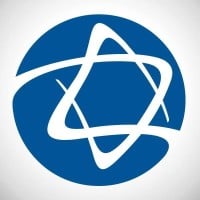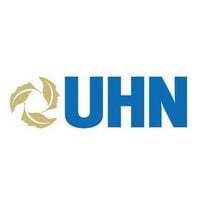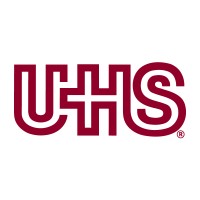Company Details
hospital-albert-einstein
36,643
1,258,561
62
einstein.br
0
HOS_2515746
In-progress

Hospital Albert Einstein Company CyberSecurity Posture
einstein.brO nascimento da Sociedade Beneficente Israelita Brasileira Albert Einstein, na década de 50, resultou do compromisso da comunidade judaica em oferecer à população brasileira uma referência em qualidade da prática médica. Mas a Sociedade queria ir além da simples construção de um hospital. E assim foi feito, construído com recursos provenientes de doações e do trabalho de um grupo de pessoas dedicadas, o Hospital Israelita Albert Einstein foi inaugurado em 1971. A partir de então, tornou-se referência em tratamentos com tecnologia de ponta, atendimento humanizado e expandiu suas fronteiras com ações de responsabilidade social e atividades de ensino e pesquisa. Hoje, a Sociedade Beneficente Israelita Brasileira Albert Einstein está à frente de projetos importantes, que mostram como a parceria público-privada pode render frutos para a comunidade. Abrigadas no Instituto Israelita de Ensino e Pesquisa Albert Einstein, as atividades de educação e pesquisa são o motor de inovação que não se restringem aos pacientes do Hospital Israelita Albert Einstein e englobam cursos técnicos, de graduação e de pós-graduação, treinamentos sofisticados e pesquisas clínica e experimental. O Einstein é hoje um sistema de saúde. Nossas sementes se espalham em diversas frentes e endereços, multiplicando frutos em benefício dos pacientes, da sociedade e do Sistema Público de Saúde.
Company Details
hospital-albert-einstein
36,643
1,258,561
62
einstein.br
0
HOS_2515746
In-progress
Between 750 and 799

 HAE Global Score (TPRM)
HAE Global Score (TPRM)XXXX

Description: The personal and health information of more than 16 million Brazilian COVID-19 patients has been leaked online after a hospital employee uploaded a spreadsheet with usernames, passwords, and access keys to sensitive government systems on GitHub. E-SUS-VE and Sivep-Gripe, two government databases used to keep information on COVID-19 patients, were among the systems that had credentials exposed. The two databases held private information, including medical records including medical histories and drug regimens as well as patient names, residences, and ID numbers. The spreadsheet containing the credentials was discovered by a GitHub user on the personal account of an employee of the Albert Einstein Hospital in the city of Sao Paolo.


No incidents recorded for Hospital Albert Einstein in 2025.
No incidents recorded for Hospital Albert Einstein in 2025.
No incidents recorded for Hospital Albert Einstein in 2025.
HAE cyber incidents detection timeline including parent company and subsidiaries

O nascimento da Sociedade Beneficente Israelita Brasileira Albert Einstein, na década de 50, resultou do compromisso da comunidade judaica em oferecer à população brasileira uma referência em qualidade da prática médica. Mas a Sociedade queria ir além da simples construção de um hospital. E assim foi feito, construído com recursos provenientes de doações e do trabalho de um grupo de pessoas dedicadas, o Hospital Israelita Albert Einstein foi inaugurado em 1971. A partir de então, tornou-se referência em tratamentos com tecnologia de ponta, atendimento humanizado e expandiu suas fronteiras com ações de responsabilidade social e atividades de ensino e pesquisa. Hoje, a Sociedade Beneficente Israelita Brasileira Albert Einstein está à frente de projetos importantes, que mostram como a parceria público-privada pode render frutos para a comunidade. Abrigadas no Instituto Israelita de Ensino e Pesquisa Albert Einstein, as atividades de educação e pesquisa são o motor de inovação que não se restringem aos pacientes do Hospital Israelita Albert Einstein e englobam cursos técnicos, de graduação e de pós-graduação, treinamentos sofisticados e pesquisas clínica e experimental. O Einstein é hoje um sistema de saúde. Nossas sementes se espalham em diversas frentes e endereços, multiplicando frutos em benefício dos pacientes, da sociedade e do Sistema Público de Saúde.

Mayo Clinic has expanded and changed in many ways, but our values remain true to the vision of our founders. Our primary value – The needs of the patient come first – guides our plans and decisions as we create the future of health care. Join us and you'll find a culture of teamwork, professionalism
Access Healthcare provides business process outsourcing, application services, and robotic process automation tools to hospitals, health systems, providers, payers, and related service providers. We operate from 20 delivery centers across nine cities in the US, India, and the Philippines, and our 2

Beth Israel Deaconess Medical Center (BIDMC) is part of Beth Israel Lahey Health, a new health care system that brings together academic medical centers and teaching hospitals, community and specialty hospitals, more than 4,000 physicians and 35,000 employees in a shared mission to expand access to

Michigan Medicine, based in Ann Arbor, Michigan, is part of one of the world’s leading universities. Michigan Medicine is a premier, highly ranked academic medical center and award-winning health care system with state-of-the-art facilities. Our vision is to create the future of health care throu

University Health Network (UHN) is Canada's largest research hospital, which includes Toronto General and Toronto Western Hospitals, Princess Margaret Cancer Centre, the Toronto Rehabilitation Institute and the Michener Institute for Education at UHN. The scope of research and complexity of cases at

One of the nation’s largest and most respected providers of hospital and healthcare services, Universal Health Services, Inc. (NYSE: UHS) has built an impressive record of achievement and performance, growing since its inception into a Fortune 300 corporation. Headquartered in King of Prussia, PA, U

Founded in 2003, Omega Healthcare Management Services® (Omega Healthcare) empowers healthcare to thrive via intelligent solutions that optimize revenue cycle operations, administrative workflows, care coordination, and clinical research on a global scale. The company works with providers, payers, li
Tenet Healthcare Corporation (NYSE: THC) is a diversified healthcare services company headquartered in Dallas. Our care delivery network includes United Surgical Partners International, the largest ambulatory platform in the country, which operates ambulatory surgery centers and surgical hospitals.
IQVIA (NYSE:IQV) is a leading global provider of clinical research services, commercial insights and healthcare intelligence to the life sciences and healthcare industries. IQVIA’s portfolio of solutions are powered by IQVIA Connected Intelligence™ to deliver actionable insights and services built o
.png)
Health-ISAC has issued a stark warning over escalating cyberattacks on Brazil's health sector, urging immediate improvements in information...
Attacks on Brazil's health system are rising, and limited intelligence sharing is contributing to put patient data and critical...
Parents need to keep a close watch for early symptoms of autism so that early detection would help providing proper training to children and improve their...
As Chief Information Officer, Chandra uses his 20-plus years of healthcare technology leadership experience to guide Montefiore Einstein's information...
A private New York City medical school is scrubbing references to diversity, equity and inclusion initiatives from its website.
Dr. George Gurdock is the Teamhealth System Medical Director of Emergency Medicine for the Palm Beach Health Network emergency departments.
Albert Einstein Hospital is moving toward the next stage of its multimillion-dollar technology and innovation strategy.
Flashes of what may become a transformative new technology are coursing through a network of optic fibers under Chicago.
A University of Vermont Medical Center employee accidentally opened an emailed file from her homeowners association, which had been hacked,...

Explore insights on cybersecurity incidents, risk posture, and Rankiteo's assessments.
The official website of Hospital Albert Einstein is http://www.einstein.br.
According to Rankiteo, Hospital Albert Einstein’s AI-generated cybersecurity score is 796, reflecting their Fair security posture.
According to Rankiteo, Hospital Albert Einstein currently holds 0 security badges, indicating that no recognized compliance certifications are currently verified for the organization.
According to Rankiteo, Hospital Albert Einstein is not certified under SOC 2 Type 1.
According to Rankiteo, Hospital Albert Einstein does not hold a SOC 2 Type 2 certification.
According to Rankiteo, Hospital Albert Einstein is not listed as GDPR compliant.
According to Rankiteo, Hospital Albert Einstein does not currently maintain PCI DSS compliance.
According to Rankiteo, Hospital Albert Einstein is not compliant with HIPAA regulations.
According to Rankiteo,Hospital Albert Einstein is not certified under ISO 27001, indicating the absence of a formally recognized information security management framework.
Hospital Albert Einstein operates primarily in the Hospitals and Health Care industry.
Hospital Albert Einstein employs approximately 36,643 people worldwide.
Hospital Albert Einstein presently has no subsidiaries across any sectors.
Hospital Albert Einstein’s official LinkedIn profile has approximately 1,258,561 followers.
Hospital Albert Einstein is classified under the NAICS code 62, which corresponds to Health Care and Social Assistance.
No, Hospital Albert Einstein does not have a profile on Crunchbase.
Yes, Hospital Albert Einstein maintains an official LinkedIn profile, which is actively utilized for branding and talent engagement, which can be accessed here: https://www.linkedin.com/company/hospital-albert-einstein.
As of November 27, 2025, Rankiteo reports that Hospital Albert Einstein has experienced 1 cybersecurity incidents.
Hospital Albert Einstein has an estimated 29,962 peer or competitor companies worldwide.
Incident Types: The types of cybersecurity incidents that have occurred include Data Leak.
Title: COVID-19 Patient Data Leak in Brazil
Description: The personal and health information of more than 16 million Brazilian COVID-19 patients has been leaked online after a hospital employee uploaded a spreadsheet with usernames, passwords, and access keys to sensitive government systems on GitHub.
Type: Data Leak
Attack Vector: Accidental Exposure
Vulnerability Exploited: Human Error
Common Attack Types: The most common types of attacks the company has faced is Data Leak.

Data Compromised: Medical records, Medical histories, Drug regimens, Patient names, Residences, Id numbers
Systems Affected: E-SUS-VESivep-Gripe
Commonly Compromised Data Types: The types of data most commonly compromised in incidents are Medical Records, Medical Histories, Drug Regimens, Patient Names, Residences, Id Numbers and .

Entity Name: Albert Einstein Hospital
Entity Type: Hospital
Industry: Healthcare
Location: Sao Paolo, Brazil

Type of Data Compromised: Medical records, Medical histories, Drug regimens, Patient names, Residences, Id numbers
Number of Records Exposed: 16 million
Sensitivity of Data: High
File Types Exposed: spreadsheet
Most Significant Data Compromised: The most significant data compromised in an incident were medical records, medical histories, drug regimens, patient names, residences, ID numbers and .
Most Significant System Affected: The most significant system affected in an incident was E-SUS-VESivep-Gripe.
Most Sensitive Data Compromised: The most sensitive data compromised in a breach were medical histories, drug regimens, medical records, ID numbers, patient names and residences.
Number of Records Exposed in Most Significant Breach: The number of records exposed in the most significant breach was 16.0M.
.png)
Angular is a development platform for building mobile and desktop web applications using TypeScript/JavaScript and other languages. Prior to versions 19.2.16, 20.3.14, and 21.0.1, there is a XSRF token leakage via protocol-relative URLs in angular HTTP clients. The vulnerability is a Credential Leak by App Logic that leads to the unauthorized disclosure of the Cross-Site Request Forgery (XSRF) token to an attacker-controlled domain. Angular's HttpClient has a built-in XSRF protection mechanism that works by checking if a request URL starts with a protocol (http:// or https://) to determine if it is cross-origin. If the URL starts with protocol-relative URL (//), it is incorrectly treated as a same-origin request, and the XSRF token is automatically added to the X-XSRF-TOKEN header. This issue has been patched in versions 19.2.16, 20.3.14, and 21.0.1. A workaround for this issue involves avoiding using protocol-relative URLs (URLs starting with //) in HttpClient requests. All backend communication URLs should be hardcoded as relative paths (starting with a single /) or fully qualified, trusted absolute URLs.
Forge (also called `node-forge`) is a native implementation of Transport Layer Security in JavaScript. An Uncontrolled Recursion vulnerability in node-forge versions 1.3.1 and below enables remote, unauthenticated attackers to craft deep ASN.1 structures that trigger unbounded recursive parsing. This leads to a Denial-of-Service (DoS) via stack exhaustion when parsing untrusted DER inputs. This issue has been patched in version 1.3.2.
Forge (also called `node-forge`) is a native implementation of Transport Layer Security in JavaScript. An Integer Overflow vulnerability in node-forge versions 1.3.1 and below enables remote, unauthenticated attackers to craft ASN.1 structures containing OIDs with oversized arcs. These arcs may be decoded as smaller, trusted OIDs due to 32-bit bitwise truncation, enabling the bypass of downstream OID-based security decisions. This issue has been patched in version 1.3.2.
Suricata is a network IDS, IPS and NSM engine developed by the OISF (Open Information Security Foundation) and the Suricata community. Prior to versions 7.0.13 and 8.0.2, working with large buffers in Lua scripts can lead to a stack overflow. Users of Lua rules and output scripts may be affected when working with large buffers. This includes a rule passing a large buffer to a Lua script. This issue has been patched in versions 7.0.13 and 8.0.2. A workaround for this issue involves disabling Lua rules and output scripts, or making sure limits, such as stream.depth.reassembly and HTTP response body limits (response-body-limit), are set to less than half the stack size.
Suricata is a network IDS, IPS and NSM engine developed by the OISF (Open Information Security Foundation) and the Suricata community. In versions from 8.0.0 to before 8.0.2, a NULL dereference can occur when the entropy keyword is used in conjunction with base64_data. This issue has been patched in version 8.0.2. A workaround involves disabling rules that use entropy in conjunction with base64_data.

Get company history
















Every week, Rankiteo analyzes billions of signals to give organizations a sharper, faster view of emerging risks. With deeper, more actionable intelligence at their fingertips, security teams can outpace threat actors, respond instantly to Zero-Day attacks, and dramatically shrink their risk exposure window.
Identify exposed access points, detect misconfigured SSL certificates, and uncover vulnerabilities across the network infrastructure.
Gain visibility into the software components used within an organization to detect vulnerabilities, manage risk, and ensure supply chain security.
Monitor and manage all IT assets and their configurations to ensure accurate, real-time visibility across the company's technology environment.
Leverage real-time insights on active threats, malware campaigns, and emerging vulnerabilities to proactively defend against evolving cyberattacks.




